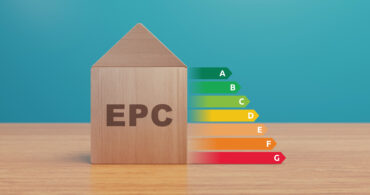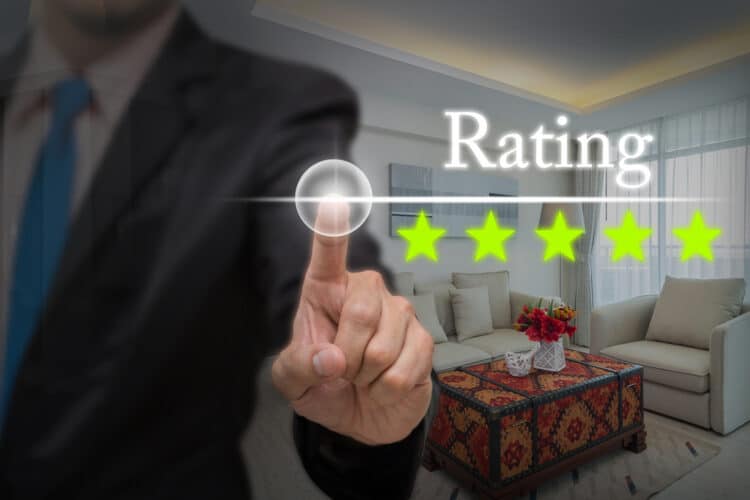A Landlord’s Guide to the Housing Health and Safety Rating System
The Housing Health and Safety Rating System (HHSRS) places obligations upon residential landlords and property managers to maintain their properties within a strict set of guidelines. The requirements are in place to ensure premises are safe and secure for residents and visitors.
The Housing Health and Safety Rating System (HHSRS) places obligations upon residential landlords and property managers to maintain their properties within a strict set of guidelines. The requirements are in place to ensure premises are safe and secure for residents and visitors.
Landlords and property managers responsible for letting out residential accommodation should make themselves familiar with the provisions of the Housing Health and Safety Rating System (HHSRS). Failure to comply with the guidelines could lead to a significant fine being levied.
What is the HHSRS?
In line with the guidance set out by the HHSRS, landlords must take care of:
- The exterior of the dwelling and structural elements, and
- The inside facilities that are part of the dwelling
The guidance has been put in place to ensure residential premises are safe and secure for tenants and visitors. The main aim for landlords is to ensure there is no risk or, if a risk is unavoidable, to keep it at an acceptable level.
What hazards are assessed under the HHSRS?
The HHSRS is a comprehensive rating system that covers 29 hazards typically found around the home.
The hazards relate to:
- Dampness and excess cold or heat
- Pollutants, such as carbon monoxide and asbestos
- Lack of space, security, lighting, noise
- Hygiene, sanitation and water supply
- Accident risks, such as electric shocks, falls, cuts, burns, collisions
- Explosions and structural collapse
The assessments are carried out by local authorities. They complete a matrix covering the 29 hazards, and have the power to act if the standard of the property falls short of the standards expected.
Each hazard is given a rating based on a band system running from A to J. Bands A to C are considered the most serious classed as category 1 risks, whilst bands D to J are considered less serious category 2 risks.
The assessment is based on the likelihood of an incident occurring, and the range of potential harmful outcomes.
What happens if issues are uncovered during the HHSRS inspection?
If a local authority inspector uncovers issues at a rental property during an HHRS inspection, they have the power to impose a range of sanctions upon the landlord with a view to resolving the problems found.
These sanctions include:
- Hazard Awareness Notice
- Improvement Notice
- Prohibition Order
- Emergency Order
- Demolition Orders and Clearance Areas
Failure to comply with any notices issued could result in fines of up to £5,000.
Prefer to delegate your landlord regulatory responsibilities? Look to homes2let.
The HHSRS assessment is just one of many good reasons for landlords to ensure their properties are maintained to acceptable standards. Of course, keeping on top of property maintenance can be very time-consuming, and not every landlord has sufficient room in their schedule to deal with everything on a day to day basis.
The solution? A property management service, but not just any property management service. This is one that comes with an added bonus.
The homes2let guaranteed rent scheme provides a full property management service, together with the total reassurance of rent paid in advance, every month, by standing order. Also included are all legal fees, regulatory compliance management (including HHSRS compliance) and sourcing and referencing new tenants. In other words, it’s a service that allows landlords to make their investment totally hands-off.
To learn more about how our guaranteed rent scheme could benefit you as a landlord, you are welcome to get in touch with our team of experienced property experts.
Related Insights

Landlords Face Tough Choices as EPC Deadline Looms
A new survey reveals that most landlords are aware of upcoming Energy Performance Certificate (EPC) regulations, but many are unprepared. Over two-thirds of landlords own properties that don't meet the new 'C' target, raising questions about how they will adapt. Will they invest in upgrades, pass the costs on to tenants, or simply sell up? Read on to discover the challenges and opportunities facing landlords in the face of these new rules...

Tenant Referencing Crisis on the Cards as COVID Damages Thousands of Credit Scores
The National Residential Landlords Association (NRLA) is warning of a looming tenant referencing crisis as thousands of tenants are facing damaged credit scores caused by legal action over rent arrears in the wake of the COVID-19 pandemic. As this crisis intensifies and no government help seems forthcoming, landlords are wise to seek a reliable way to guarantee their rent.

How to Make a Successful Tenancy Deposit Scheme Claim
Of the 29,697 tenancy deposit scheme cases that came to dispute in 2020/21, 75 per cent were initiated by the tenant. Comparing this to just 17 per cent having been initiated by a letting agent, and 8 per cent by a landlord, it’s clear to see that it’s important for landlords to be prepared and aware of best practices should they find themselves in a deposit protection scheme dispute.







